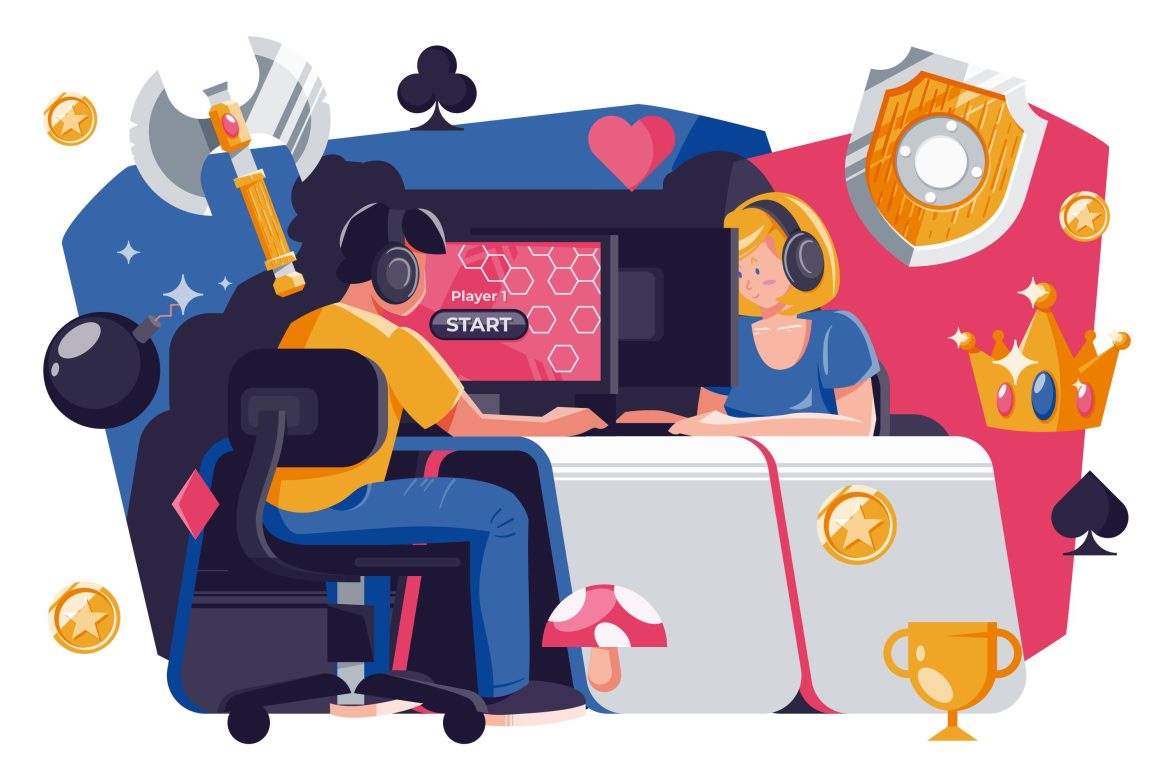Game development is an exciting and dynamic field that brings together creativity, technology, and storytelling to create immersive experiences for players. Whether you’re an aspiring game designer, programmer, artist, or storyteller, getting started in game development can be a thrilling journey. This guide will walk you through the essential steps to embark on your game development adventure.
1. Understand the Basics: Before diving into the technical aspects of game development, take the time to understand the fundamental concepts. Learn about game genres, mechanics, and platforms. Study successful games to analyze what makes them engaging and enjoyable.
2. Choose a Game Engine: A game engine is the software that provides tools and frameworks to build games. Popular engines like Unity, Unreal Engine, and Godot offer various features and capabilities. Research and choose an engine that suits your project’s requirements and your skill level.
3. Learn Programming: Programming is a core skill in game development. Depending on your chosen engine, you’ll need to learn languages like C#, C++, or Python. Online tutorials, coding courses, and community forums can help you grasp programming fundamentals.
4. Start Small: Begin with a simple project to grasp the basics. Create a small game with minimal complexity, such as a 2D platformer or a puzzle game. This helps you understand the development process and build your confidence.
5. Resources and Tutorials: Utilize online resources, tutorials, and forums to learn from experienced developers. Websites like Udemy, Coursera, and YouTube offer a plethora of tutorials on various game development topics.
6. Art and Design: Visuals play a crucial role in games. If you’re an artist, learn about 2D and 3D design, animation, and user interface (UI) design. If you’re not an artist, consider collaborating with one. Tools like Photoshop, Blender, and Aseprite can aid in creating assets.
7. Game Mechanics and Gameplay: Understand the mechanics that make games engaging, such as player controls, physics, and interactions. Focus on creating enjoyable and challenging gameplay experiences.
8. Storytelling and Narrative: If your game involves a story, delve into the art of storytelling and narrative design. Develop characters, plotlines, and dialogues that immerse players in your game’s world.
9. Version Control: Use version control systems like Git to track changes in your code and assets. This ensures you can revert to previous versions if needed and collaborate effectively with team members.
10. Playtesting and Feedback: Regularly playtest your game and gather feedback from friends, family, or online communities. Constructive criticism helps identify areas for improvement.
11. Iteration and Improvement: Game development is an iterative process. Continuously refine and polish your game based on feedback and your own observations.
12. Publish and Distribute: Once your game reaches a satisfactory level, consider publishing it. Platforms like Steam, itch.io, and app stores offer opportunities to distribute and monetize your creations.
13. Marketing and Promotion: Promote your game through social media, game forums, and gaming events. Effective marketing can significantly increase your game’s visibility.
14. Learn from Failures: Not every project will be a success, and that’s okay. Learn from your failures and apply those lessons to your next endeavor.
15. Keep Learning: Game development is a constantly evolving field. Stay updated with the latest technologies, trends, and tools to keep your skills sharp.
16. Join a Community: Connect with fellow game developers through forums, online communities, and local meetups. Networking can lead to collaborations, learning opportunities, and a support system.
17. Stay Persistent: Game development can be challenging, but persistence is key. Don’t be discouraged by setbacks; instead, use them as motivation to improve.
18. Legal and Copyright Considerations: Understand the legal aspects of game development, such as copyrights, licensing, and intellectual property rights. This ensures you’re on the right side of the law.
19. Specialize or Diversify: As you gain experience, consider specializing in a particular aspect of game development, like programming, art, or design. Alternatively, stay versatile and continue expanding your skill set.
20. Have Fun: Remember that game development is a creative process. Enjoy the journey, embrace challenges, and celebrate your achievements, no matter how small.
In conclusion, game development is a multifaceted endeavor that requires a combination of skills, passion, and dedication. By understanding the basics, choosing the right tools, and continuously learning and improving, you can bring your ideas to life and create captivating gaming experiences. Whether you’re an aspiring indie developer or dreaming of joining a major game studio, the journey begins with that first step into the world of game development.


